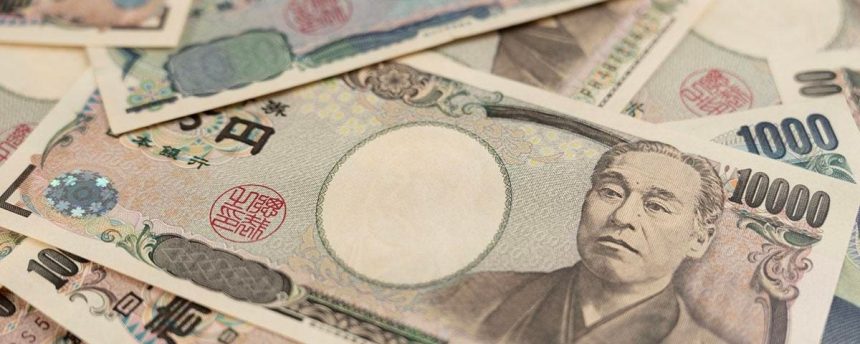Week in Review
- Asian equities were mixed but mostly lower this week, following Wall Street lower on BOJ rate hikes.
- Policymakers were busy this week as multiple agencies echoed the need for more stimulus measures after the Politburo readout on Tuesday.
- July’s official Manufacturing and Non-Manufacturing PMIs were slightly lower than June and expectations, though the release did not appear to impact markets.
- Alibaba announced that it will charge merchants a small transaction fee, which led its stock higher this week. Other E-Commerce platforms already charge such a fee.
Key News
Asian equities had the worst day I can remember over the last 11 years, as Japan fell -6% on BoJ tightening, causing the yen to rally to 148 JPY per USD from 161 on July 3rd. Growth and semiconductor-heavy Taiwan and South Korea fell -4.4% and -3.65%, respectively, following poor US economic data, and Intel and Amazon’s disappointing results yesterday.
Crowded trades, such as borrowing in yen and investing in US tech stocks, are being eviscerated. While Mainland China and Hong Kong are the furthest from being crowded, they were not spared from the risk-off sentiment. The foreign-held Hong Kong off more than Mainland China, which is predominantly held by domestic investors.
There was very little China-specific news overnight, though Bloomberg News’ PBOC advisor Huang Yiping stated that the government should focus more on consumption via “cash handouts to households” and “expanding the budget deficit to support the economy.”
The Hang Seng closed just below the 17,000 level. Apple’s results and the semiconductor smash hit Hong Kong and mainland-related subsectors such as Apple suppliers, technical hardware, electronic equipment, semiconductors, and software.
Healthcare was the best-performing sector on the Mainland, where it was up +1.38%, and a rare bright spot in Hong Kong, as Wuxi AppTec gained +4.75% following regulation changes that will allow for faster drug approvals for the industry and the company’s strong results, released on Monday.
Hong Kong’s most heavily traded stocks by value were Tencent, which fell -2.02%, Meituan, which fell -4.76%, HSBC, which fell -3.66%, Alibaba, which fell -2.77%, and energy giant CNOOC, which fell -2.39%. Mainland investors were rare net sellers of Hong Kong-listed stocks as the Hong Kong Tracker ETF was hit. Mainland markets held up better than Hong Kong, as their low foreign ownership levels mean they are not part of globalized fund flows. National Team-favored ETFs saw a spike into the close, indicating support to minimize the downdraft.
The Hang Seng and Hang Seng Tech indexes fell -2.08% and -2.68%, respectively, on volume that increased +6.86% from yesterday, which is 98% of the 1-year average. 93 stocks advanced, while 384 declined. Main Board short turnover increased +4.21% from yesterday, which is 95% of the 1-year average, as 17% of turnover was short turnover (Hong Kong short turnover includes ETF short volume, which is driven by market makers’ ETF hedging). Value “outperformed” (i.e. fell less than) growth. All sectors were negative. The top-performing subsectors were food & beverage, pharmaceuticals, and telecom. Meanwhile, media, autos, and technical hardware were among the worst-performing. Southbound Stock Connect volumes were moderate as Mainland investors sold a net -$242 million worth of Hong Kong-listed stocks and ETFs, including the Hong Kong Tracker ETF, which was a large net sell.
Shanghai, Shenzhen, and the STAR Board fell -0.92%, -1.27%, and -1.79%, respectively, on volume that decreased -7.68% from yesterday, which is 89% of the 1-year average. 1,062 stocks advanced, while 3,836 stocks declined. Large caps and the value factor “outperformed” (i.e. fell less than) small caps and growth stocks. The top-performing sectors were Health Care, which gained +1.38%, Consumer Staples, which gained +0.58%, and Utilities, which gained +0.09%. Meanwhile, Technology fell -2.24%, Consumer Discretionary fell -1.34%, and Materials fell -0.83%. The top-performing subsectors were education, agriculture, and telecom, while communication equipment, computer hardware, and electronic components were the worst. Northbound Stock Connect volumes were moderate as foreign investors were net sellers of mainland stocks. Treasury bonds rallied. CNY and the Asia dollar index rallied versus the US dollar. Copper fell while steel was flat.
Upcoming Webinar
Join us on Thursday, August 8th at 1 pm EDT for:
Overview of Hedgeye’s Proprietary Risk Range™ Signals & A New ETF To Help Manage Risk In US Equities
Please click here to register
New Content
Read our latest article:
China’s Fintech Ecosystem Update: A New Era?
Please click here to read
Last Night’s Performance
Last Night’s Exchange Rates, Prices, & Yields
- CNY per USD 7.17 versus 7.25 yesterday
- CNY per EUR 7.82 versus 7.81 yesterday
- Yield on 1-Day Government Bond 1.29% versus 1.34% yesterday
- Yield on 10-Year Government Bond 2.13% versus 2.13% yesterday
- Yield on 10-Year China Development Bank Bond 2.20% versus 2.20% yesterday
- Copper Price -1.35%
- Steel Price 0.00%
Read the full article here
















